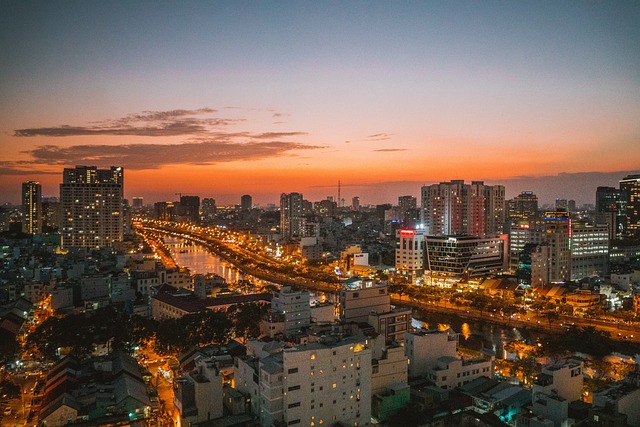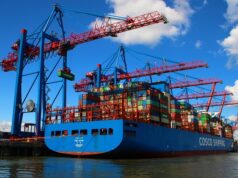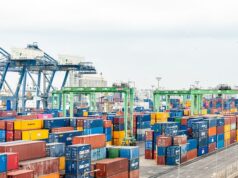- Two OECD surveys conducted with the Asian Development Bank show Vietnam’s economy growing 6.5% in 2023 and 6.6% next year
- Vietnam’s top priorities in coming years include taming inflation, which ADB forecast at 4.5% this year and 4.2% in 2024; boosting economic recovery, enhancing social protection, improving the business climate and speeding up the country’s digital transformation
- OECD noted Vietnam’s open economy exposes to geopolitical uncertainties and potential supply chain disruptions and that Hanoi needs to make additional efforts to advance structural reforms that will further strengthen market forces
Vietnam’s economy is expected to grow 6.5% in 2023 and 6.6% next year, according to results of one of two Organisation for Economic Cooperation and Development economic surveys announced in a ceremony in Hanoi on April 26, according to Vietnamese news reports.
The other OECD survey said Vietnam’s top priorities in the coming years include keeping inflation in check, boosting economic recovery, enhancing social protection, improving the business climate and speeding up the country’s digital transformation.
The surveys said Vietnam has been quick to recover from the downturn caused by the Covid-19 pandemic owing to an agile policy response. The pandemic interrupted three decades of sustained high economic growth, Vietnam News reported.
“Swift and tailored sanitary measures meant Vietnam did not experience large-scale outbreaks until mid-2021,” Vietnam News quoted the survey results, “Thereafter, the vaccination campaign was fast. Economic growth outperformed most other Southeast Asian economies through the pandemic, providing a solid basis for further economic progress.”
On April 4, Asian Development Bank said in its Asian Development Outlook 2023 that strong tourism performance and robust domestic demand are boosting Southeast Asian economies like Indonesia, the Philippines and Vietnam to grow an average of 4.7% this year and 5.0% in 2024.
The ADO 2030 shows Vietnam leading the sub-region’s GDP growth with 6.5% this year and 6.8% in 2024. But the report shows inflation at 4.5% in 2023 and 4.2% in 2024.
Nhan Dan, the official organ of the Vietnamese Community Party, said the report was the first on Vietnam’s economy that OECD conducted in conjunction with the ADB.
The report quoted Vincent Koen, OECD acting deputy director of Economic Country Studies Branch, as saying Vietnam has made remarkable economic progress over the past decades, sustaining high growth due to its extensive and continued reforms since the 1980s.
Koen said the Vietnamese economy has proved resilient to shocks, including the Covid-19 pandemic, noting that during the outbreak, Vietnam’s economic growth was outstanding among other Southeast Asian nations, Nhan Dan reported.
OECD noted the openness of Vietnam’s economy leaves it exposed to geopolitical uncertainties and potential supply chain disruptions and needs to make additional efforts to advance structural reforms that will further strengthen market forces, the reports said.
OECD urged Vietnam to cut its dependence on fossil fuels, halt new coal investments and accelerate implementation of a carbon market. Additional funding needed to push these projects call for expanding the tax base to enhance government revenues.
The survey also suggested that Vietnam consider providing targeted financial support to households that are strongly affected by high energy and food prices, prepare a concrete medium-term fiscal consolidation plan to further enhance revenue, simplify business regulations, and enhance digital skills.
A clear and predictable long-term climate change strategy should be prepared, including an energy sector reform that is crucial to upscale investment in renewable energy sources to guide all economic sectors to a low carbon path.
The OECD survey said challenges started to emerge as the Southeast Asian economy experienced unexpectedly high inflation due to rising energy and commodity prices, according to OECD.
Monetary policy normalization in advanced economies has widened the gap in interest rates, further stoking inflation in Vietnam, adding downward pressure to the exchange rate. This is eroding households’ purchasing power, providing a headwind to the nascent recovery of private consumption and increasing poverty risks for vulnerable households.
OECD recommended Vietnam tighten monetary policies to keep inflation in check and provide additional support to businesses and citizens to cushion the impact of rising costs of living on vulnerable groups.
In addition, the country must lay down some groundwork in anticipation of a higher old-age dependency rate, which has been projected to rise from 11% to 33% by 2050, among some of the highest in Southeast Asia.
RELATED READ: Vietnam defies Asia’s slowing but challenges loom: IMF









